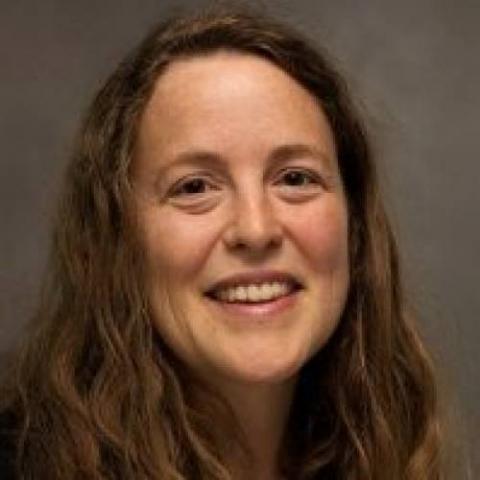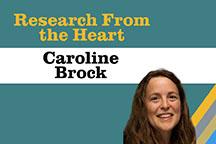- Log in to post comments

Caroline Brock
Caroline Brock, associate teaching professor for the Department of Sociology since July 2020, has a passion for research and teaching — a passion that stands above fame, recognition, and fortune.
That’s because her studies — on Plain farmers of conservative Amish and Mennonite descent — are not at the forefront of academic research, and there is a “paucity of knowledge in this area” particularly in the context of agriculture and conservation, and she is one of the leading researchers on the topic.
Brock, who has been a professor at MU since 2012, says she chose to research Amish and Mennonite communities in a variety of states: Wisconsin, Ohio, Indiana, Pennsylvania, and Michigan, because more and more they are emerging in rural America, in terms of farming.
“They are becoming a larger sector of the farming population,” she adds. “Especially small, midsized farming, as other farmers are getting out of (the industry)."

An Amish farmer in Wisconsin. Photo credit: John Cross
At Mizzou, she teaches a larger writing intensive class, “Amish Community.” Recently, she was asked by editors of “The Journal of Amish and Plain Anabaptist Studies” to serve as guest editor for an issue focusing on agriculture and conservation.
Even so, there is little academic attention paid to her work because of the unfamiliarity with the topic. But she stands by her studies with empathy and dedication.
She says the more she studies the Amish and Mennonite communities and farming practices, the more she realizes how little she knows. “It always leads to more questions,” she adds.
And questions come from her students, as well, who understand her great passion and compassion for the Plain farmers.
While her interest and experience with the Plain people may be what attracts the most immediate intrigue in her work, her scope of research and teaching goes well beyond that and centers on bridging disconnects in understanding between science and practice as well as those of inclusivity for students

Photo of Brock at friend’s organic dairy farm in Southwest Wisconsin. This was an area with a lot of organic dairy farms at the time and also many Amish farms..
I think … the sociological lens can be helpful for informing complex problems in the world. So even though I started as more of a natural scientist, I realized the technical knowledge in and of itself didn’t address the real-world knowledge and can’t completely address real-world problems because the social perspective is so important. - Caroline Brock
From Biology to Sociology
Though her earlier academic background is in the natural sciences — a BA in Biology, an MS in land resources — she moved toward a social interdisciplinary framework with an MS in agriculture and applied economics and a Ph.D. in environment and resources.
“I think … the sociological lens can be helpful for informing complex problems in the world,” she adds. “So even though I started as more of a natural scientist, I realized the technical knowledge in and of itself didn’t address the real-world knowledge and can’t completely address real-world problems because the social perspective is so important.”
Connecting the Disconnects
Brock says the main theme of her research is looking at the disconnect between scientific and practitioner ways of looking at issues. In terms of issues such as climate change, she states: “So, to some degree, there’s some political pushback around it and maybe some concern that it will … mean more regulation. Among the farming community, they already feel kind of pushed-down upon already.”
She says one of the main concerns of farmers in general is soil health and there are possibilities to connect those concerns to issues related to climate change.

Cows in a field
“For instance, for some Amish farmers — as an example of a group of farmers who are not necessarily motivated by climate change concerns — are actually adopting cover crops at higher percentages. This may be in part because of this interest in soil health.”
Cover crops are plants used to prevent soil erosion and create soil fertility among other benefits as they “cover” the land and are not meant for harvesting.
“This is usually positive as it relates to climate change,” Brock says.
She adds what’s most important, is people, no matter their field of study, no matter the type of scholar they are, should work together with other scholars to share and learn from each other.
“I’d love to work with other people in other disciplines,” she says. “I want to figure out ways to improve as a community of scholars.”
